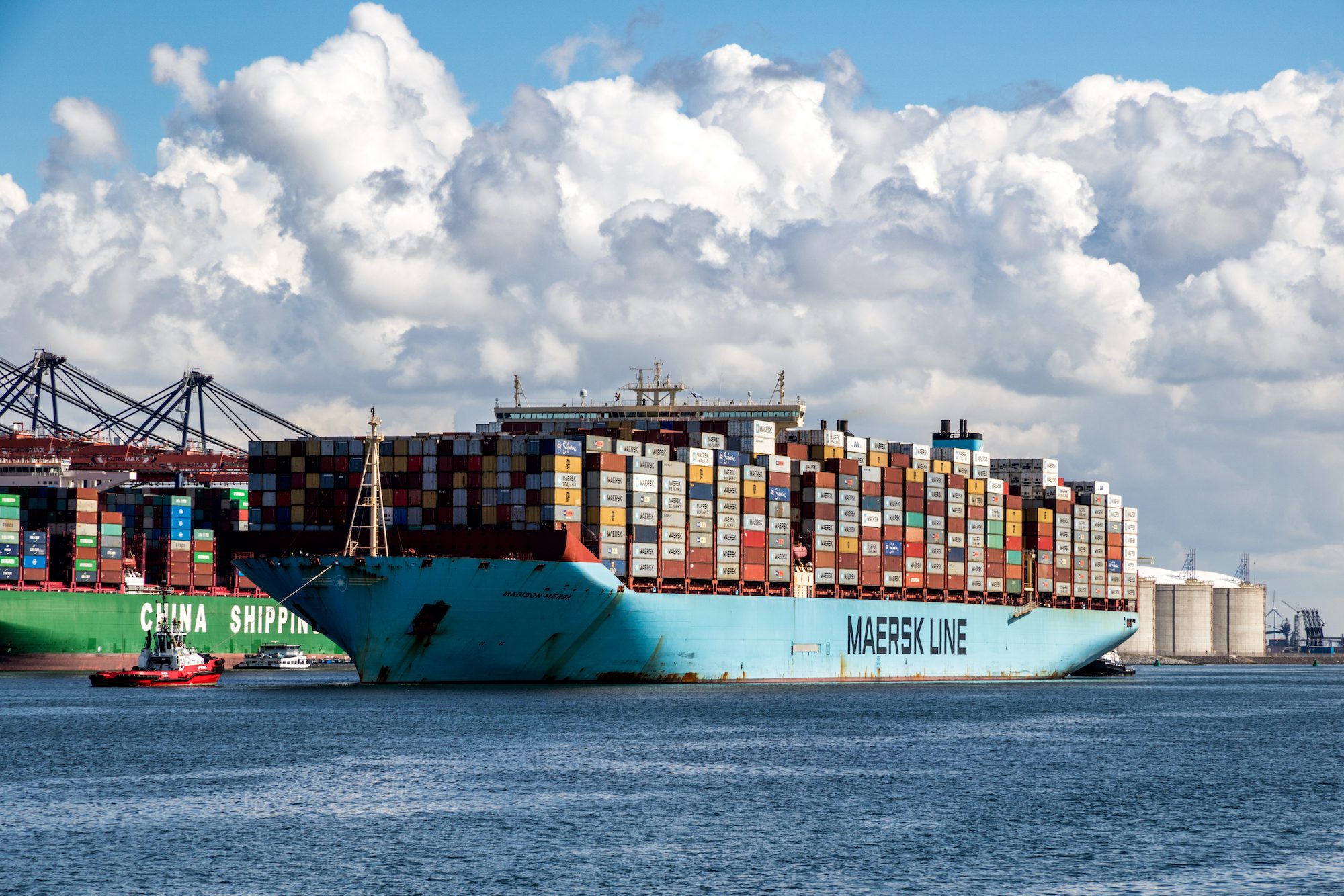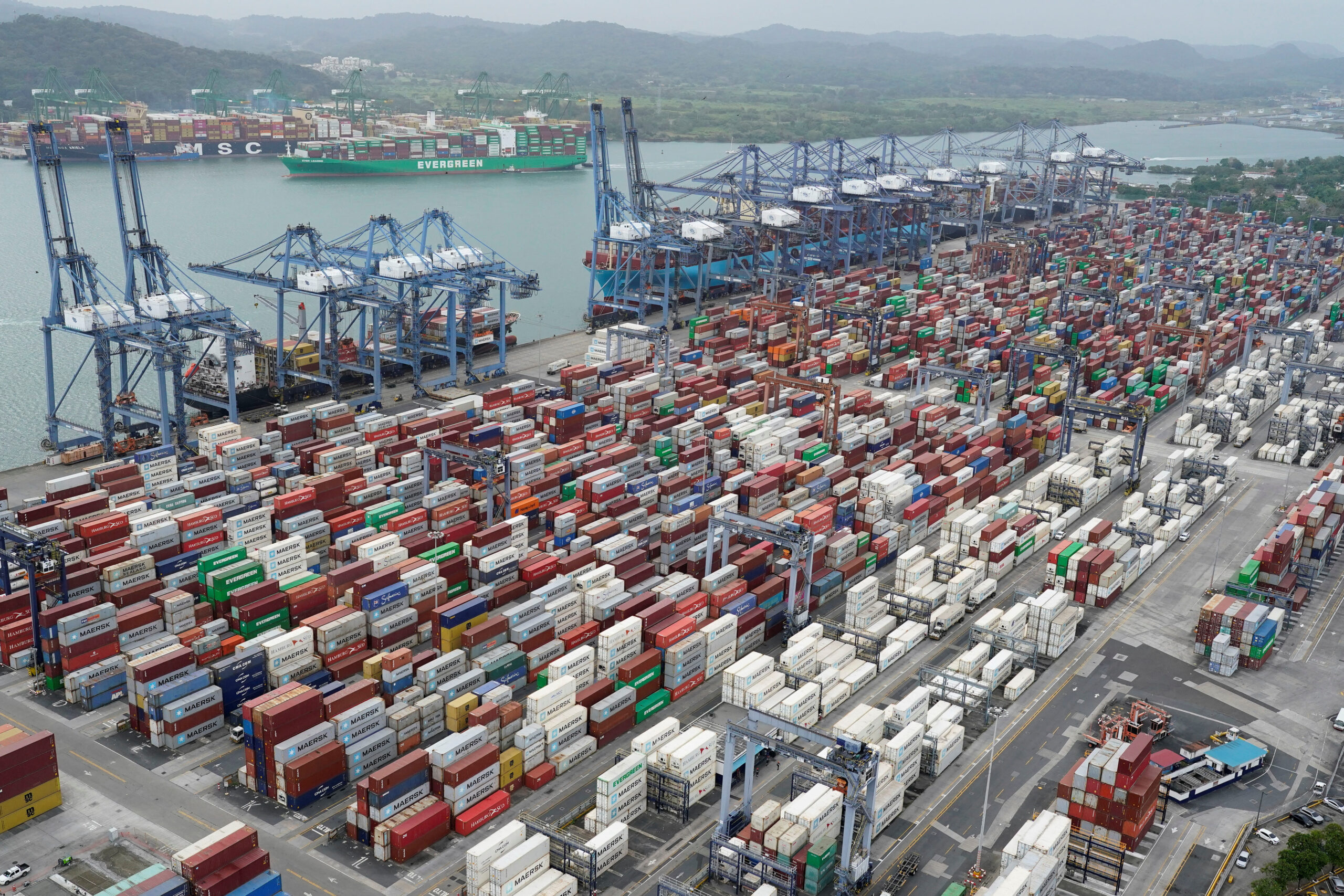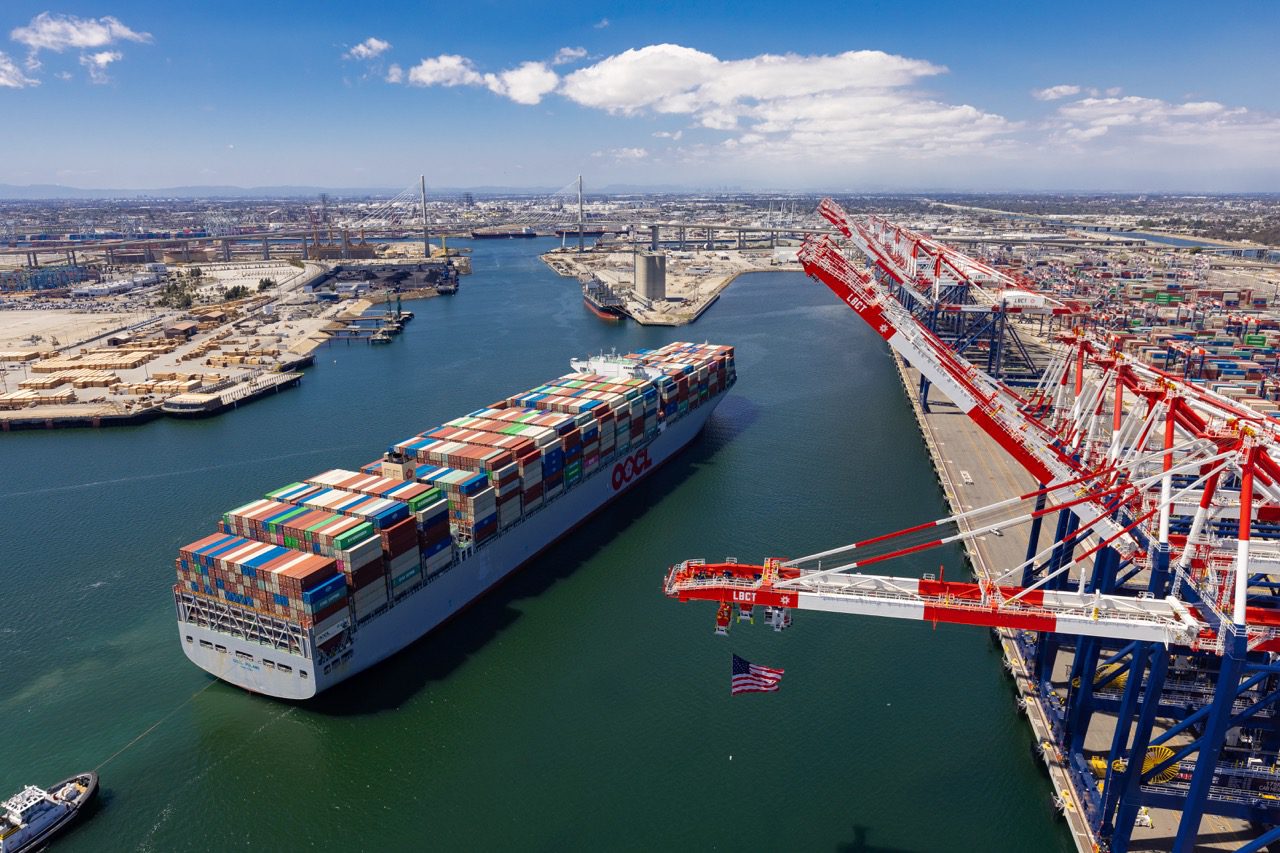A cargo ship is anchored outside the Port of Long Beach, California December 4, 2012. REUTERS/Mario Anzuon
By Alison Vekshin and James Nash
July 1 (Bloomberg) — Twelve years after a labor dispute closed West Coast ports and cost the U.S. economy $1 billion a day, negotiators on both sides want to avoid a repeat that could be twice as expensive.
Talks between the International Longshore and Warehouse Union and the Pacific Maritime Association may go on for weeks without any disruption after the contract for about 20,000 dockworkers at 29 ports expires today at 5 p.m. Pacific time. A strike or lockout at ports whose operations contribute to 12.5 percent of gross domestic product would be a blow to the economy and could be a public relations disaster for a union whose members earn from $25 to $40 an hour.
“There hasn’t been a lot of saber-rattling on either side,” said George Lovell, chairman of the Harry Bridges Center for Labor Studies at the University of Washington in Seattle. “This is a climate in which both sides have an interest in getting this settled.”
The maritime association, which represents shipping lines and terminal operators, locked out workers in 2002 after contract talks broke down. The 10-day shutdown ended when then- President George W. Bush invoked the rarely used Taft-Hartley Act to reopen the ports.
“Many workers would be happy to have jobs that have the kinds of wages and benefits that union workers have, but those jobs are few and far between in the U.S. economy,” said Alec Levenson, a labor economist at the Center for Effective Organizations at the University of Southern California in Los Angeles. “That’s a disadvantage for them if there is a long, drawn-out strike in terms of the publicity.”
Remaining Open
A 10-day stoppage today could cost the U.S. economy more than $2 billion a day and put 169,000 people out of work, according to a report by the National Retail Federation and the National Association of Manufacturers. The cost of the 2002 lockout was $1 billion a day, according to the maritime association.
The negotiations, which began May 12, are likely to extend into mid-July, said Wade Gates, a spokesman for the San Francisco-based maritime association. After the contract runs out today, “the ports will remain open, the workers will continue working and the negotiators will continue negotiating,” said Craig Merrilees, a spokesman for the union, also in San Francisco.
In the past, agreements on new contracts have been reached after the old ones expired, Merrilees said.
Ripple Effects
The West Coast ports — from San Diego to Bellingham, Washington — are responsible for almost half of all U.S. maritime trade, including more than 70 percent of imports from Asia, according to the association. The largest of the ports is the Port of Los Angeles, where cargo volume has rebounded to nearly the peak in 2006, before the recession, and could surpass that next year, based on port statistics.
West Coast ports have been squeezed by competitors in Mexico, Canada and the Gulf Coast and East Coast in the U.S., and will be pressured by the opening of the expanded Panama Canal in 2015. The West Coast ports’ share of U.S. shipping trade volume fell to 43.5 percent in 2013 from 48.6 percent in 2008, according to a maritime association report. Lovell said the competition is nudging management and labor toward an amicable settlement.
Cargo moving through West Coast ports and jobs depending on the trade are equal to 12.5 percent of U.S. gross domestic product, according to the report by the manufacturers and retailer groups that cited a study by Lancaster, Pennsylvania- based Martin Associates. An “intractable and prolonged” dispute would have ripple effects across the economy that are “too severe to ignore,” the trade groups said.
Supply Chain
The Martin Associates report attributed 9.2 million U.S. jobs to cargo entering through West Coast ports. The study added the wages, salaries and taxes from the port-related jobs to the value of cargo itself to come up with its estimate of the percentage of gross domestic product from the ports.
The union and the maritime association are negotiating over work rules, salaries and health care for dockworkers. Gates and Merrilees declined last week to provide details about their sides’ bargaining positions.
The threat of a strike has led some shippers to speed up deliveries and to shift some cargo to other ports, according to Jonathan Gold, vice president of supply chain and customs policy at the National Retail Federation in Washington.
“Because of the uncertainty and not knowing whether or not there’s going to be disruption, they don’t want to be caught if something does occur,” Gold said. “They want to make sure that they have a continuously fluid and predictable supply chain.”
–With assistance from Carlos Torres and Ken Fireman in Washington.
Copyright 2014 Bloomberg.

 Join The Club
Join The Club











